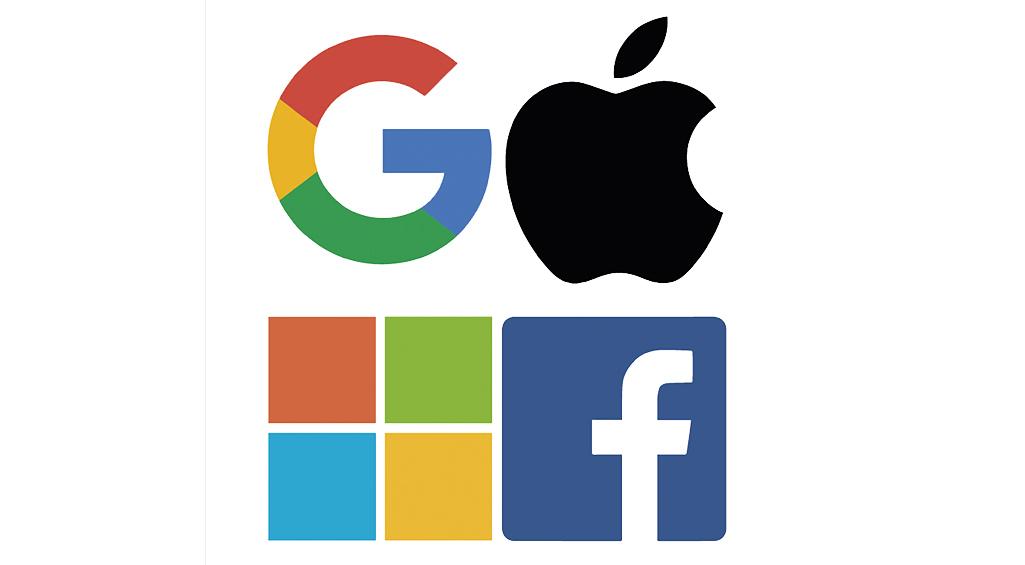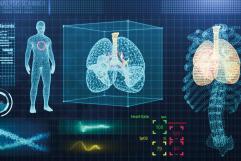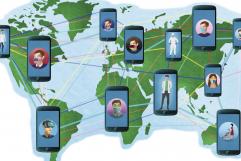
The large technological companies are knocking on the health sector’s door
They centralise billions of personal data every day, regarding our location, preferences and searches. Now they want to keep us healthy.
The large technological companies have entered the health sector and they already offer applications to manager our health and well-being data on different platforms with proposals such as the Apple Health app or Fitbit, which Alphabet, Google’s parent company purchased a year ago for 2,100 million dollars. “Taking into account the enormous investment they have made and the very advanced technical knowledge, a priori, everything seemed to indicate that they were going to land in the health sector in a big way,” stated Doctor Juanjo Beunza, an expert in AI and a member of the Machine Learning Salud Group at the Universidad Europea.
However, this has not been the case. “I think that they have had two very important difficulties. The first one is being able to obtain clinical data from millions of citizens, who freely offer their personal data, but who are not ready to do the same with their medical notes. In second place is the lack of coordination with the existing healthcare systems. It is not enough to offer an Alzheimer diagnosis algorithm; we must know how to integrate it into the current clinical system and, above all, adapt it to the end user population,” Beunza recalls.
For the expert, “it is clear that with the thousands of pieces of data that they have from each of us in our personal profiles, they make incredible commercial predictions that have led them to be the top-valued companies in the world and in the history of mankind. But this predictive potential is not yet being applied to the health setting.” However, “the risk of improper use of this information and of these predictions is parallel. And today, in the prevailing business model, citizens rights do not have priority over investment capital profits,” he concludes.
Fitbit. In November, 2019, Alphabet announced the purchase of Fitbit for a sum of 2,100 million dollars – around 1,900 million euros. Fitbit is a company specialising in wearable technology products and Alphabet is Google’s parent company. With the acquisition, the company led by Sundar Pichai is taking another step towards the health and well-being sector. At the beginning of the year, for 40 million dollars it had already purchased the division that the Fossil watch manufacturer had created for developing smart watches.
The purchase of Fitbit now has to obtain the anti-monopoly approval from the European Union. To do this, the technological company has offered to restrict the Fitbit data and make it easier for the wearables manufacturers to connect to the Android platform, giving them access to the programming interface of the Android applications.
Last November controversy broke out due to an article in The Wall Street Journal, which reported that Google employees had had access to the personal medical data of millions of patients from the hospital company Ascension, the second largest health system in the USA. This publication motivated Google and the Ascension Group to formally sign a data transfer agreement a few hours later.
Apple
Health. Apple also wants a piece of the cake and on occasion, Tim Cook, the company’s CEO has already stated that health would be technology’s “greatest contribution to mankind”. A report by CB Insights reveals that Apple would have a strategy centred on patients, therefore, giving priority to the consumer experience. And accordingly, most of Apple’s movements in the health sector are related to applications and functions on users’ devices. The company already defines its Apple Watch as “the health watchdog.”
Additionally, with the arrival of iOS 13, Apple included the Health application in its operating system, therefore it is already possible to monitor our physical condition, track daily activity or receive messages and useful notifications. A card with our medical details can also be created.
The software can monitor the calories we eat and keep a record of our sleep patterns when we combine it with an Apple Watch, as it compiles data from iPhone, the Apple Watch and from third party apps.
Microsoft
Information in the cloud. Microsoft has created its own cloud for the healthcare sector. Microsoft Cloud has tools that allow improved work flows or to safely share patient information between teams. The company uses its own software that combines technology from its partners, such as the Brazilian company PBSF, which works in 23 hospitals and has already attended over 3,000 babies with neurological risks. Another of its associates is the Argentinean consulting company Enfoke, which has been developing, integrating and marketing innovative technological solutions for the health industry since 1999, and which has adopted Microsoft Azure. Enfoke created the EGesS platform (Strategy and Management in Health using its initials in Spanish), specifically devoted to the diagnosis using radiology imaging and the high complexity segment.
In January of this year, Microsoft launched AI for Health, a programme in which it will invest 40 million dollars and that will put its Artificial Intelligence at the disposal of researchers, non-profit-making organisations and scientists to help face up to some of the most complicated challenges in the world related to health. Since 2018, they have been carrying out the Microsoft Immunomics project for precision medicine using AI. And since 2015, Microsoft Premonition has been used for the analysis of population health, amongst other projects.
Fake news. The company belonging to Mark Zuckerberg has returned to newspaper headlines after being accused of misinforming about coronavirus. The citizen movement Avaaz reported that the disinformation on the social media platform had reached 3,800 million hits over the past year. Avaaz analysed a sample of over 100 fake news stories about coronavirus on Facebook and 41% remained on the platform without any warning labels attached to them. From its corporate page, Facebook explains that “it is working alongside the World Health Organisation (WHO), UNICEF and public health ministries in different countries, to connect people with reliable information and to prevent the propagation of fake news” and it announced the launch of the Coronavirus Information Center with the latest up-dates and recommendations offered by global and local health organisations.
It has also created a series of maps with anonymous data from its users that reflect their movements and personal connections, to be used by researchers and universities.



